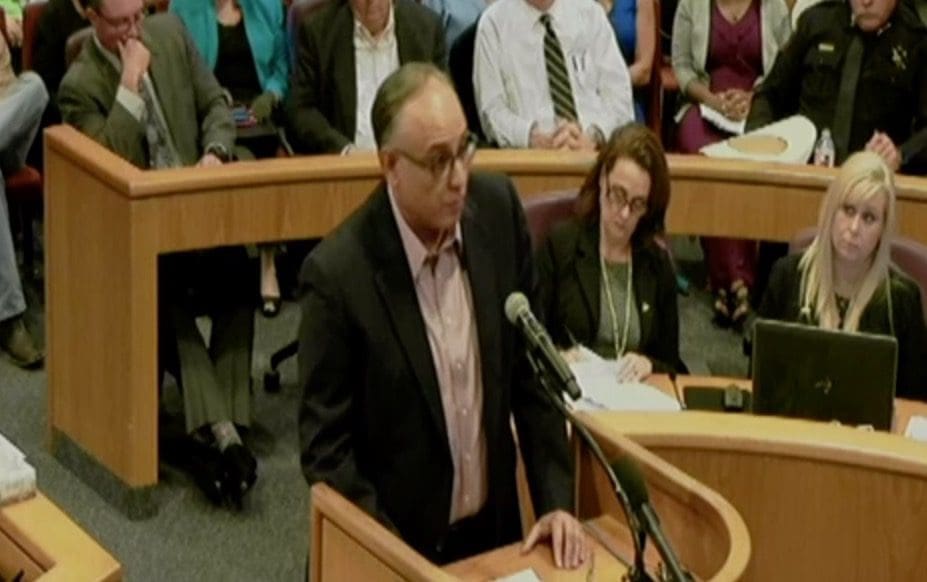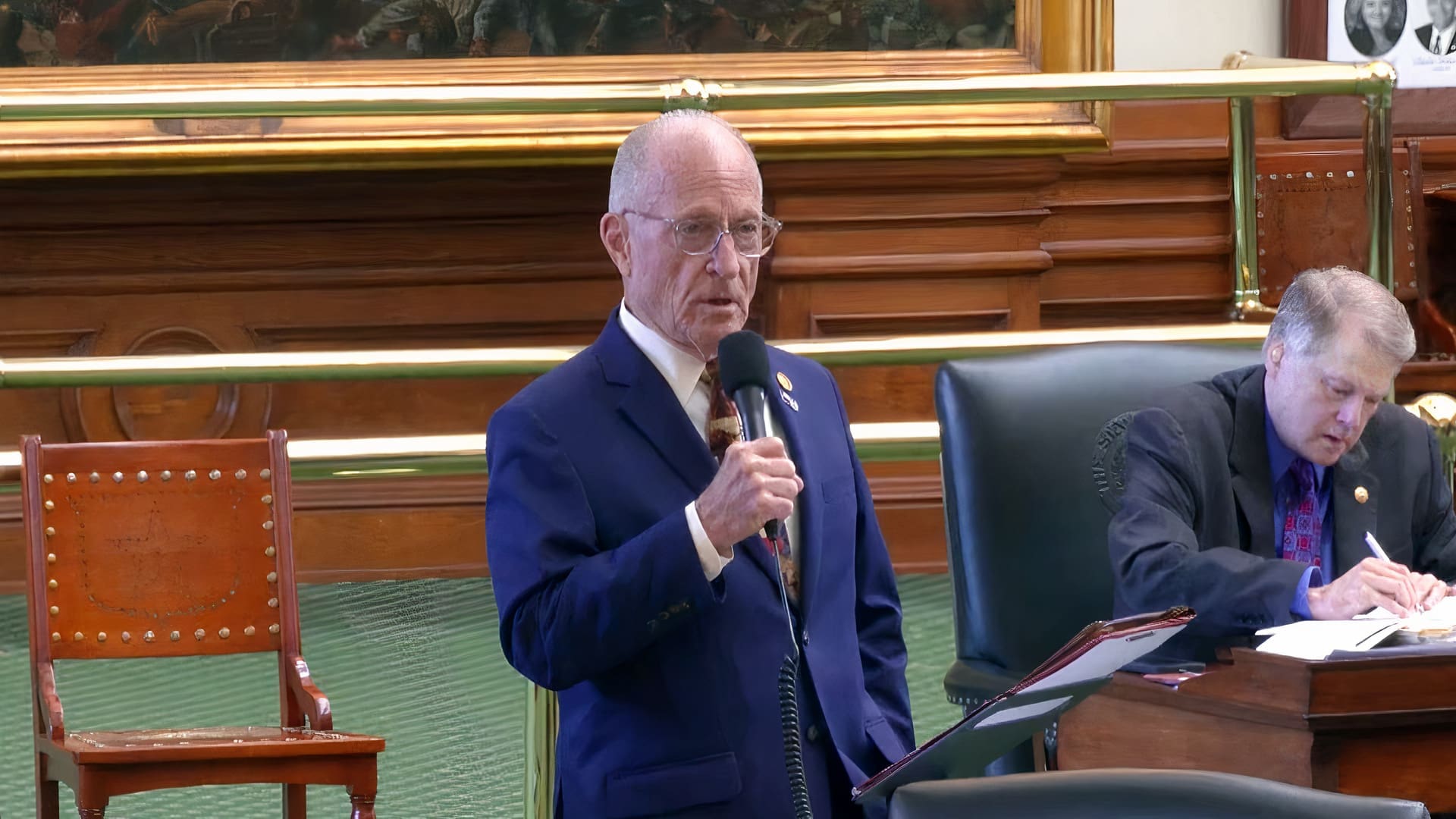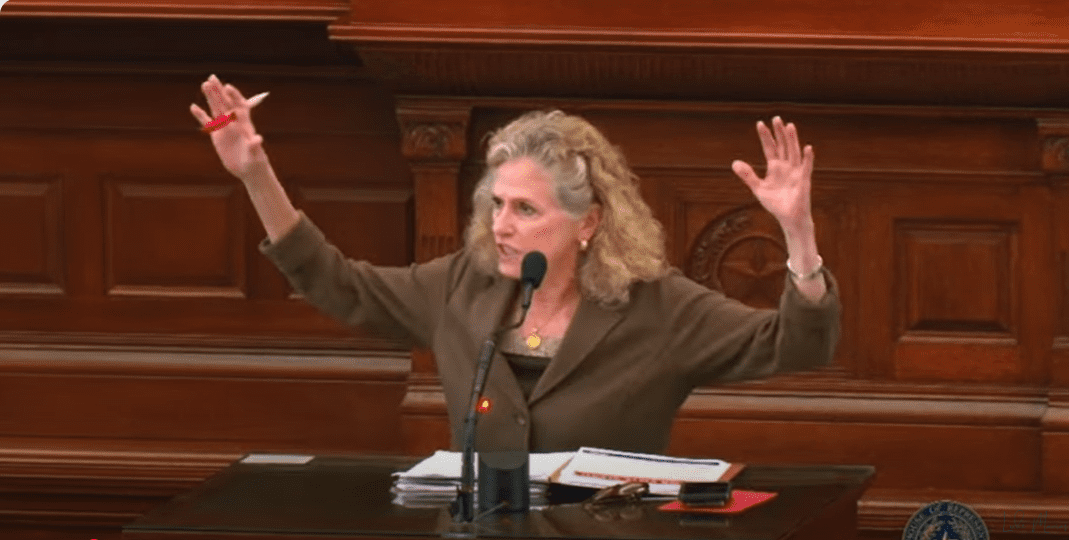Tarrant County Commissioners Court voted 3-2 Tuesday for the sheriff’s office to continue participating in a federal immigration enforcement program.
Since 2017, Tarrant County has partnered with U.S. Immigration and Customs Enforcement (ICE) in its Section 287(g) public safety program, named after the applicable section of the federal Immigration and Nationality Act. The program’s Jail Enforcement Model, in which Tarrant participates, is designed to “identify and process removable aliens with criminal or pending criminal charges who are arrested” by state or local law enforcement authorities. Local authorities check the immigration status of inmates who have committed a Class B misdemeanor or higher offense after they have been booked into jail.
In a repeat of last week’s public comments, representatives of leftist organizations—a number donning t-shirts with custom designed logos of their organizations—appeared in commissioners court Tuesday to protest renewal of the program.
 “Just because someone is accused of a crime doesn’t mean they are guilty,” said Juana Guzman of ICE Out of Tarrant, an anti-immigration enforcement group that brought several protesters to testify against renewing the county’s partnership with ICE.
“Just because someone is accused of a crime doesn’t mean they are guilty,” said Juana Guzman of ICE Out of Tarrant, an anti-immigration enforcement group that brought several protesters to testify against renewing the county’s partnership with ICE.
“Today we have the new Jim Crow,” added Elizabeth Moldonado, agreeing with others who claimed the 287(g) program is racially motivated and unfairly targets minority communities.
“We are not conducting any type of raids or exercises,” Tarrant County Sheriff Bill Waybourn told commissioners in response to the claims. “We are not conducting racial profiling.”
A number of others came out in support of renewing the county’s agreement with ICE.
“I’m a Hispanic. I’m not in fear, because I’m a U.S.A. citizen,” said Ruben Salinas of Denton County, speaking in favor of the 287(g) program. “It’s simply an issue about public safety and the rule of law.”
 “This is the United States of America. You have to obey the law,” said another supporter, a 72-year-old legal immigrant from Mexico, recounting the words her mother spoke to her when she brought her to America many years ago. “I’m not white, I don’t have blue eyes. The police have never stopped me because of my color.”
“This is the United States of America. You have to obey the law,” said another supporter, a 72-year-old legal immigrant from Mexico, recounting the words her mother spoke to her when she brought her to America many years ago. “I’m not white, I don’t have blue eyes. The police have never stopped me because of my color.”
At one point, County Judge Glen Whitley had a back-and-forth with Giovanni Martinez of ICE Out of Tarrant, after Martinez recounted his arrest for possession and subsequent detention by ICE. During a series of questions, Martinez admitted to Whitley and the commissioners that he was processed, released, and has a future court date to resolve his immigration status next year, while the possession case he was originally arrested for was resolved.
“So, I guess, to some extent, the system worked,” Whitley observed.
“The system worked for who?” asked Precinct 1 Commissioner Roy Charles Brooks. “It criminalized an immigration violation. An immigration offense is not a criminal offense. It’s a civil offense.”
Later, Precinct 4 Commissioner J.D. Johnson, while stating that his office had received threats over this vote, pointed out that Brooks had originally voted in favor of 287(g) in 2017. “I repent of that vote,” Brooks replied.
Another argument leveled against 287(g) was the cost to taxpayers, one that Brooks agreed with, in light of the enactment of Senate Bill 2. The law puts in place next year an automatic election trigger on property tax increases over 3.5 percent for most cities and counties, including Tarrant.
“That 3.5 percent hard cap on our revenues is going to have to force us to make some serious decisions about what we must do, about what we can do, about what we can afford to do,” Brooks said.
However, data from the Tarrant Appraisal District disputes there being a revenue problem, as the average property tax bill for single-family homes increased 31 percent over the past five years, and last week the commissioners voted unanimously to hand out a property tax abatement to a big business.
“We’re part of the 50 percent who pay taxes,” said Tarrant County resident Marie Howard, arguing that the costs of illegal immigration are reason enough to enforce American immigration laws.
“I know that the fear exists among many of those estimated 300,000 folks, and for that I’m very, very sorry,” Whitley said, adding he blames Congress for failing to fully address the immigration issue adequately and believes there should be a path to citizenship. But he agreed with ICE’s 287(g) Jail Enforcement Model and the process of checking the immigration status of those who have committed Class B misdemeanors or above.
“I believe that we need to go through that process,” Whitley said.
After the vote, the room erupted into shouting as those opposing 287(g) stood up, some holding signs, and walked out of the courtroom chanting, “Ain’t no power but the power of the people, cause the power of the people don’t stop!”
Whitley, Johnson, and Precinct 3 Commissioner Gary Fickes voted in favor of renewing the 287(g) partnership with ICE. Brooks and Precinct 2 Commissioner Devan Allen voted against.





